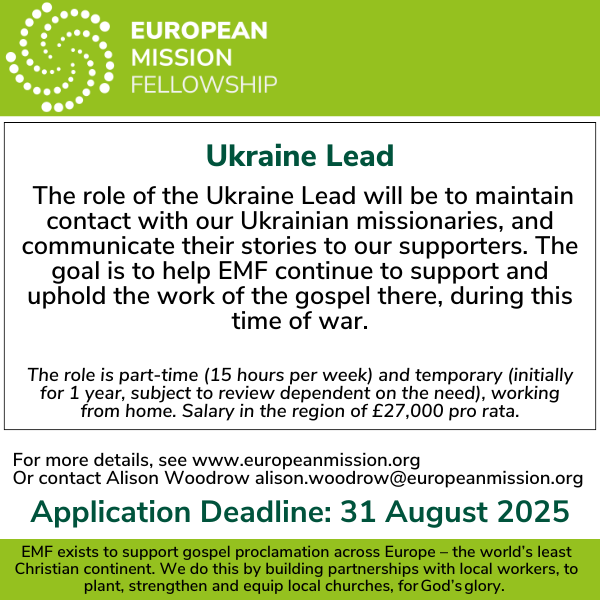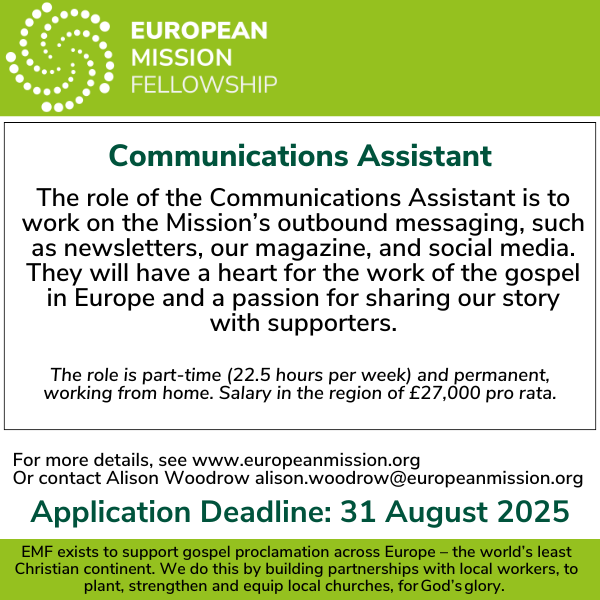Westminster Conference 2010
This conference met over two days in December at the American Church in London (next year’s venue is Regent Hall, Oxford Street). This year’s theme was ‘Standing firm – still Protestant’. With Catholicism taking big strides forward in the UK, it was timely.
In the first session, John Owen Centre principal Garry Williams spoke on ‘The English Reformation – revise, reverse or revert?’ He gave an excellent survey of various determined attempts to reinterpret Reformation history and theology.
Dr Williams concluded that challenging earlier, over-simplistic assumptions about this period has, on occasions, yielded genuine insights, but that we have nothing to learn from those historians and theologians who would ‘reverse’ the Reformation.
Guy Davies spoke on ‘Puritan attitudes to Rome’; and particularly the approach of John Owen to Catholicism. His paper and the ensuing discussion examined the painful issue of modern evangelicals converting to Rome.
David Gregson gave a fascinating paper on ‘The 1611 English Bible: an unlikely masterpiece’. The providence of God that superintended the emergence of the Authorised Version out of the most unlikely circumstances was truly amazing.
It was refreshing too to hear a masterly presentation on this wonderful book, that could commend it without battlecries against other versions!
Complexity
The opening paper of the second day, given by Dr Sam Waldron, was on ‘The uneasy relationship of repentance and sola fide in the Reformed tradition’.
We were left in little doubt about the complexity of this topic, as he explored a range of diverse interpretations from the likes of John Calvin, Norman Shepherd, the ‘Marrow men’ and D. M. Lloyd-Jones.
Daniel Webber, in his paper ‘The centenary of the Edinburgh Missionary Conference of 1910’, took the lid off that conference – the launch pad of the twentieth century ecumenical movement.
Mr Webber described in helpful detail the conference’s circumstances and composition, but more detail on the attendees’ theological agendas and their interaction with each other would have been helpful, if there had been time.
Finally, Malcolm MacLean spoke on Andrew Bonar. This was heart-warming material, although a little predictable. Again, it would have been intriguing to have included more material on Bonar’s theological stance over the pressing issues of his day.
All six papers were well prepared and ably presented; and the discussions afterwards seemed to have more coherence than usual. Numbers in attendance were well down on previous years – almost certainly because of the harsh winter weather.
Next year’s papers are on ‘Christian liberty and the Westminster Assembly’, ‘The covenanting experience’, ‘Obadiah Holmes’, ‘Socinianism then and now’, ‘Puritanism – where did it all go wrong?’ and ‘John Eliot’.
Roger Fay







